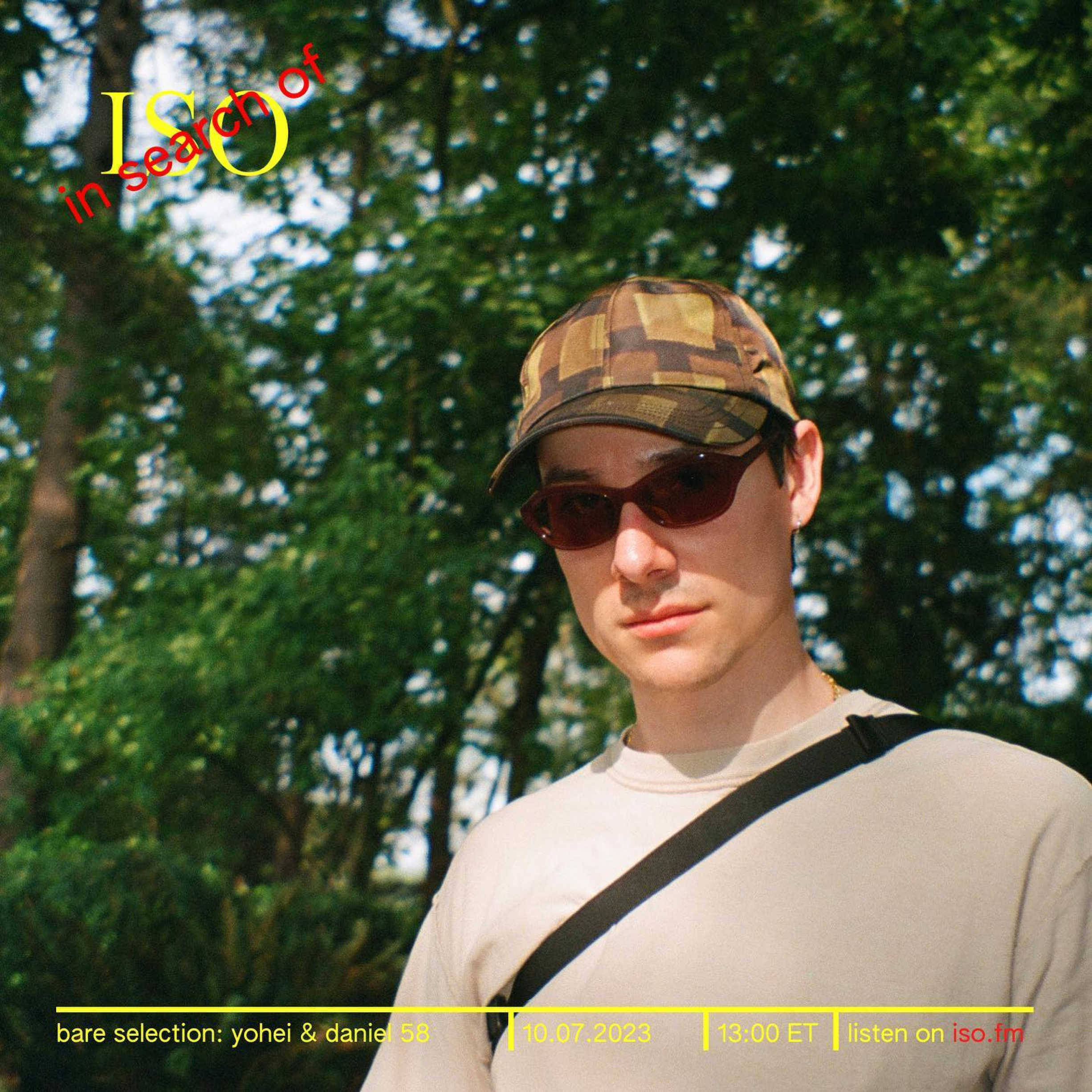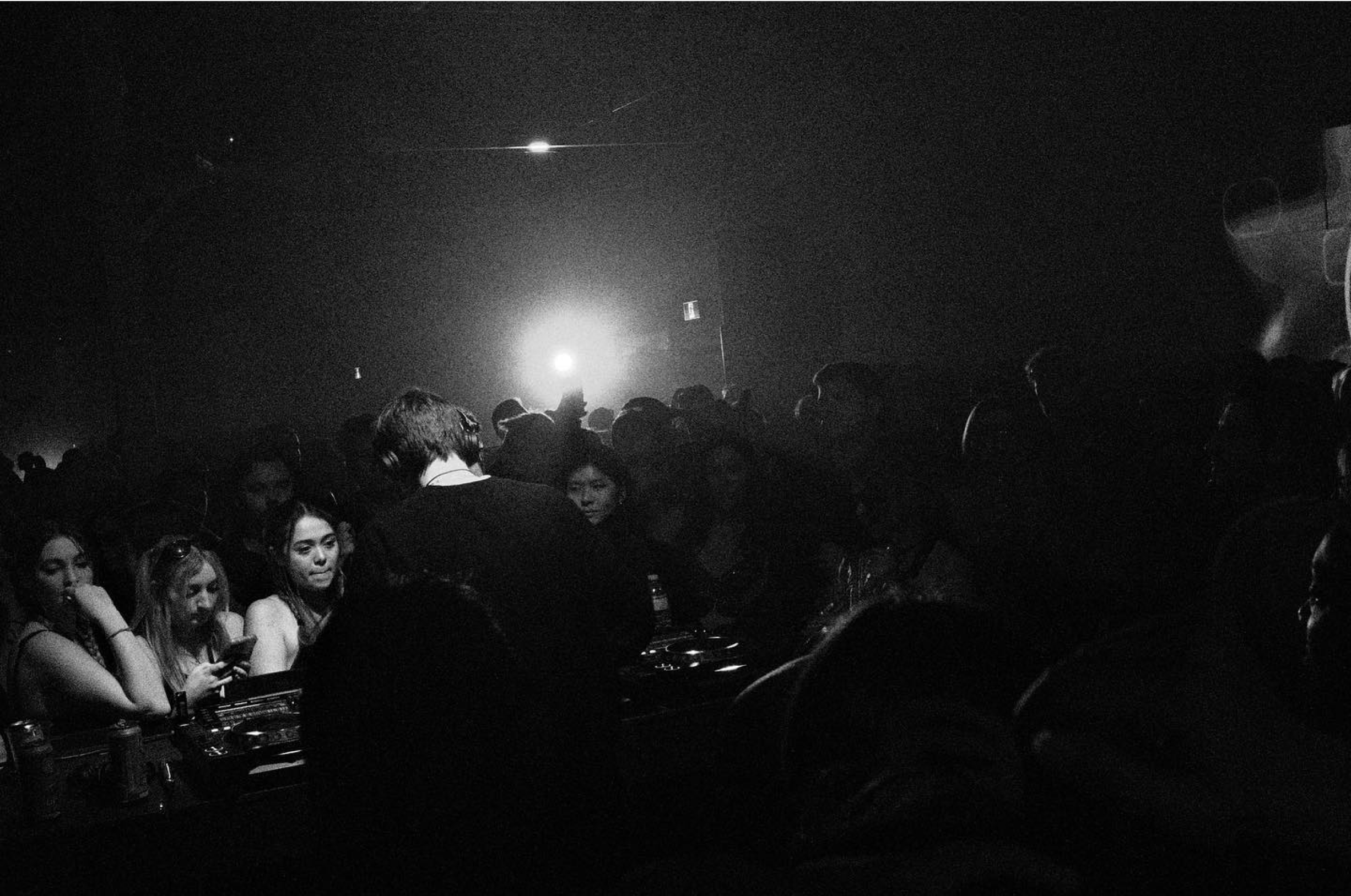Daniel 58 is a Toronto-based producer and DJ whose work draws inspiration from his personal and cultural background. His music blends intricate drum patterns and low-end frequencies, enriched with delicate sound design, to create a unique reflection of his artistic identity. With nearly a decade of experience under his belt, Daniel has established himself as a dynamic figure in the electronic music scene through his innovative approach to producing and willingness to experiment with different sounds and styles.
I’m wondering if you can talk a bit about the genesis of Parallel Minds?
I don’t really remember the exact year, it might have been 2017, but at the time it was myself, Cindy Li, Yohei Saka, and Raf Reza. We were just hanging out and brainstorming and we noticed there was a gap within music labels in Canada representing the Toronto scene. Montreal had it’s thing, Vancouver had it’s thing, but for Toronto, given that it’s the biggest city in Canada, there was a lack of something going on at the time. That’s not to say there weren't people doing things, but more so for the genres and scenes we were involved in, there was a lack of representation. So, we thought it would be cool to prioritize Toronto music makers and producers since there is obviously a plethora that the city has to offer but there is a lack of a platform for their voices and artwork to be seen and heard globally.
How do you prioritize the work you do as an artist and the label?
For me, I put more time and energy into the label as opposed to DJing. I would like to get the label to the point where I can spend more time on it. I still have to work a day job, and we’re not doing it to pay our bills, but I’d like to get it to a place where it can be a larger thing. Several years ago I was more ambitious chasing down DJ gigs for myself, but now, post-COVID, I’m realizing that the whole industry is pretty volatile and unstable. As I get older, I realize I’m fine with having a day job, something that’s stable to support myself, and do my creative stuff on the side. That’s what makes sense for me right now.
I’m wondering what some of the touchstones, models, or inspirations are for you in terms of running Parallel Minds?
I don’t think it was so much in terms of inspirations, or other labels we were looking up to, but more so we had this vision that we wanted to give Toronto a platform. That’s the driving force behind it. Outside of that, there comes creative direction, and art direction, but it’s changed since we started. I was more into graphic design earlier on, but I’ve taken a step back from it. I still do most of it for the label, but I don’t really immerse myself in the graphic design world or follow it. We don’t really want to keep ourselves bound to a genre. Both Cindy and I listen to such a wide range of music. I don’t want to have it be so tied to genre, where we just put out a certain sound of house or techno music. I would rather it be more eclectic and keep referring back to Toronto artists as the focus. There’s so many styles in that. Obviously, we have to restrict it to a point. We probably wont be doing guitar music – maybe we will, down the road, who knows – but for right now it’s ultimately dance music driven.

How do you pick up on what’s going on and choose where to put your spotlight?
It can be pretty tough. Admittedly, I haven’t been going out or keeping my ear to the ground as much as I'd like to. My work has been more demanding these past couple years. Generally, I try to keep an eye out on what shows are happening. If there’s an international DJ in town, I’ll notice who’s promoting it, and the DJs who are opening for it, and look into them. Then from there I'll look at social media, see what they’re posting, and dig through there. To be honest, I always want to do a better job of doing that. For the releases we’ve had, it’s been closer friends that we know, and connections that we already have in the scene. Our friends are making amazing music, and I would love to release all their music, but of course we want to explore the other people in the scene who we don’t know super well and don’t call our friends – yet!
Is there a scene or a musician that you found recently that has been a bit of a discovery for you?
For sure. For me and my tastes, the stuff I’ve been DJing, listening to, and producing, it’s changed pretty drastically in the past four years. It’s been leaning more into the club side of things instead of house, especially the Latin club stuff that’s been coming out recently. I know for Cindy as well, we’ve both been pretty interested in the DJ and producer Ana Luisa. She does a party series called Veneno along with Sofia Fly which is more Latin and club-focused. I’ve been more tapped into that sound recently. It’s great that this flourishing scene is popping up in Toronto.
Your musical approach is so multifaceted, and I’m wondering if you can talk a bit about how all those elements contribute to your musical practice.
It started out with DJing and having an interest in record collecting. Digging around and finding older records. I’m not musically trained or anything, I didn't grow up playing an instrument, so I taught myself how to use Ableton. It just tried it out because friends were encouraging me, and then from there I just fell in love with it. It started taking over my life, in a good way. I was just immersing myself in the scene, meeting DJs and producers in the city and across Canada. I try to keep an open mind about all styles of music and acknowledge that although it may not be something I listen to there will always be techniques, sounds etc. I can take inspiration and learn from.
When did your interest in DJing and record collecting start?
Almost ten years ago I started getting into DJing, and then maybe two years after I got into vinyl and record collecting. At the time I was really into the Vancouver scene, and that was very vinyl-focused. I saw DJs I looked up to playing vinyl so it became something I wanted to learn how to do. Although, I don’t really collect or play vinyl as much anymore. I still very much enjoy it. I was talking to a friend about this the other day. I’m so bad at song titles that when I’m looking through song lists I don’t know what any of the songs are. That’s the thing about vinyl that I liked. I’m more visual, so I know it’s a certain side of the vinyl artwork. If it’s a name, I just forget it.

How did you become familiar with the Vancouver scene? Is that where you’re from?
I’m from Calgary originally, but I have a friend who moved to Vancouver. When I got interested in DJing, I naturally looked to him as a role model.
Did the label and production come at the same time?
Producing came a couple of years before. Circling back to how the label started, the four of us, we all make music as well so I think it was natural to do a compilation where we each had a song. I love all their music, and I’m lucky that they like mine too. So, I guess they went hand-in-hand. Production came earlier and for me it takes a while to hone that craft to a point where I’m comfortable releasing it, but the label is an opportunity and a platform for us to share our music as well, although we don’t want ourselves to be the focus.
What would you say are some of your musical influences or inspirations?
It’s so vast, to be honest. I listen to such a wide range of things. I don’t have a good word for what it would be, and the word I’m thinking of doesn’t necessarily do it justice, but for me I like weirder sounds. That could mean anything to anyone, but for me it means stuff that isn’t so straightforward, and maybe more sound design-driven. Lots of details within the sounds. That’s also played into how my tastes have changed. Not to say there isn’t a lot of sound design in older house music, but what I’ve gravitated towards is the UK bass scene and I find it more focused on sound design and the rhythms are more polyrhythmic, or less straightforward. I draw a lot of inspiration from that, music that can catch you off guard.
Can you elaborate a bit on what you mean by sound design? It has so many implications from movies and sound effects to what you hear in your headphones.
Talking about movies is a really good point. Sounds that you wouldn’t necessarily associate with music. I’m interested in finding musical qualities in that stuff, as opposed to a piano or a regular sounding 808 snare. Just sounds that are a bit more granular, with a bit more texture or character to them.

Do you use those elements to create the music, or are they more atmospheric?
I would say both. For my music, I use a lot of that stuff for atmosphere, but since I’m not musically trained, it’s harder for me to write melodies and things like that. So, I focus less on how something sounds musically, in terms of scales and notes, and focus more on the quality of the sound effect, or synth patch. I also focus a lot on rhythm. Everyone has rhythm, so I feel I can dive into it more and get more techy with it, and play around with it.
Is there some really esoteric sound design you can think of that stands out for you?
For me, one of the most obvious ones is Rhythm & Sound. It’s dub techno, but if you listen to those records and songs, the sounds are so wild and interesting, especially on headphones or a bigger system. You can really feel it, like someone is putting a blanket around you. It’s so all-encompassing. I don’t know what the technical term for their sound would be, but it’s so textural.
Is it like ASMR?
Kind of! They are heavily influenced by reggae so there’s just that deep sub-bass aspect as well. It has a very textural and atmospheric quality. I would say it’s a bit ASMR-y.
In terms of your Work Redux mix, do you listen to music while you work?
I definitely do, but not so much lately. In my office we talk a lot, so I kind of get FOMO. if I’m listening to music and miss the conversation. I do like to listen to music while I work though. That Rhythm & Sound album, for example, I probably listen to a song from it every single day. As I mentioned, I listen to so many kinds of music that I can listen to anything while I’m working. I can listen to chilled-out dub techno, ambient music, or really aggressive club music. The driving quality across all of those is that it’s somewhat repetitive. I don’t mean that in a bad way. I think that the quality of being repetitive but evolving is crucial.
Did you bring that same quality to the mix?
For sure. The mix is definitely different. It wasn’t a club mix. I focus on the environment a mix is going to be heard in. I didn’t want it to be too chill, but reflective of a playlist I would listen to with those sound design elements included. I want it to be somewhat narrative. I think it’s fine to jump into a mix on a high note, but that’s not generally what I do. Also, for my own sake, I need to play something chill at the start of a set because I’m so high strung with anxiety that I need to play something chill to gather my bearings, not necessarily ambient, but something with enough wiggle room to fit in the next song I want to play. Then from there, it’s a bit of trial and error trying to figure it out.

Do you develop it on the fly?
For this mix, I had a pretty good map of what I wanted to do. It’s different when I’m DJing at a bar or a club. It’s not so planned out. I have a playlist, but I don’t stick to it too strictly. But for this, I put a lot of thought into it.
And what makes it different to be in front of an audience?
It’s kind of hard to say. I feel weird DJing sometimes. When people are looking at me I can get weirded out, but the crowd reaction is really nice. For me, I don’t necessarily want it to be too linear. Not to say I take all kinds of twists and turns, but I try to throw little things in there that throw people off a bit. Maybe it’s an abrupt change or a quick transition, but it just showcases different styles and techniques in a mix. It keeps the listener interested, and it keeps me interested. I don’t always want to hear long one-minute blends. It’s nice to hear that sometimes, but I like to switch things around and keep people on their toes. I like to be a bit cheeky.
–Work Redux is a collection of mixes made to be listened to while working. We work closely with local and international DJs to assemble thoughtful music that will carry members throughout their day and introduce them to new sounds. East Room is a shared workspace company providing design-forward office solutions, authentic programming and a diverse community to established companies and enterprising freelancers. We explore art, design, music, and entrepreneurship, visit our news & stories page to read more.